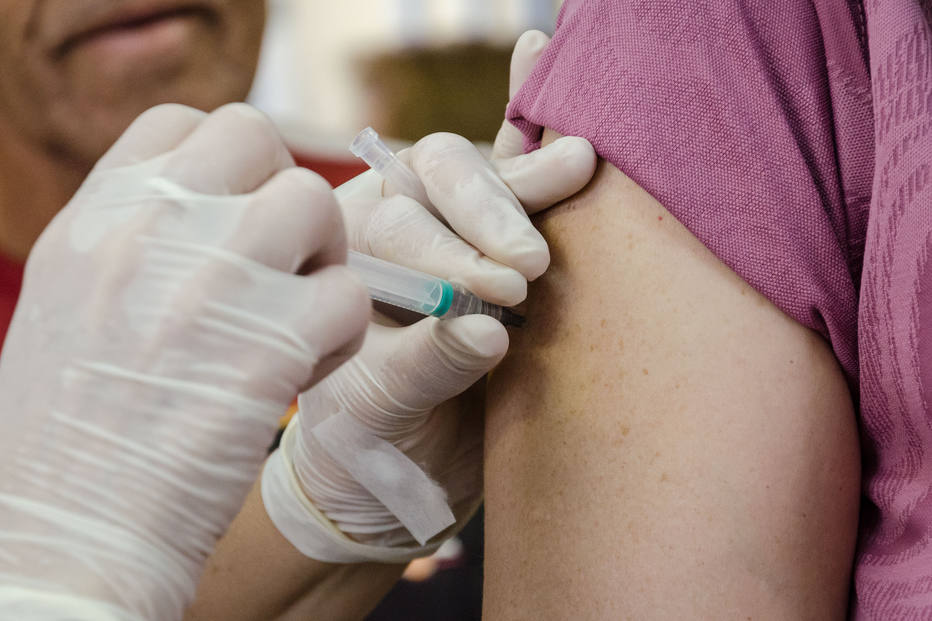Brasilia – in a new phase of the national campaign COVID-19 vaccinationOh Ministry of Health Plan to apply, by the end of May, at least the first dose of the vaccine to people with pre-existing illnesses such as diabetic e HypertensionPermanent disability, pregnant women And the puerperal woman.
Within this group, the federal government’s direction is to prioritize the vaccination of infected people Down’s syndrome; Kidney disease on dialysis. People with permanent disabilities (from 55 to 59 years old and registered in Advantages of the Continuous Installment Program); With Comorbidities (55 to 59 years old), in addition to pregnant and postpartum women with comorbidities. In the second step, the recommendation is to immunize young people with the same conditions (the priority order is detailed at the end of this text).
These groups were already included in the vaccination plan for Covid-19, But without detailing deadlines and prioritizing. Previously, the government sent doses to immunize groups such as health workers, people over 60, and indigenous people, as well as part of the security, rescue and armed forces.
In a technical note, the ministry expects that the new groups will be vaccinated by the end of May, but considers that this schedule “is subject to changes depending on the effective delivery of vaccines.” States and municipalities can change the vaccination order, but the health warns of the importance of allocating doses to designated groups at the national level.
The Ministry estimates that more than 25 million people will be vaccinated in this new phase. This is the largest group expected in a national COVID-19 vaccination plan. So far, Saeed says that at least 27.45 million people have already received at least the first dose of the country’s immune system.
According to the latest release of the National Covid-19 Vaccination Plan, dated March 15th, pre-existing diseases that can exacerbate covid-19 diabetes (comorbidities) are considered; Resistant arterial hypertension and cardiovascular disease. The priorities in these groups are also cerebral vascular patients; Chronic kidney failure; Sickle cell anemia; Morbid obesity; Down’s syndrome; Cirrhosis and immunosuppressants (including people with HIV).
At a Senate meeting, on Monday the 26th, Executive Secretary of Health, Rodrigo Cruz, said all priority groups should receive at least the first dose of the vaccine by the first half of June. From that date on, people outside the National Immunization Plan priority list can receive vaccinations. In September, Cruz said, all priority groups had already received the second dose.
The Ministry advises that the pregnant woman must prove that she is at risk due to pre-existing diseases (comorbidities) through “examinations, prescriptions, medical reports, prescriptions, etc.” Existing registrations can also be used in health facilities. The vaccination should be done regardless of the gestational age and a pregnancy test is not a prerequisite, Saeed says, and in the postpartum period, it is not necessary to stop breastfeeding to receive the vaccination. Pregnant and postpartum women can receive inactivated virus, vector, or mRNA vaccines, that is, there are no restrictions on the vaccinations for Coronavac, Oxford / AstraZeneca, Pfizer and Janssen, already approved in Brazil.
The federal government also recommends that people with CKD be vaccinated for dialysis within dialysis clinics. The doses can still be received in the vaccination rooms, but the Ministry of Health advises that in this case the disease is confirmed through tests or medical advice.
The second dose
In two other technical notes that were also sent to the directors of SUS, the department stresses that it is essential to follow the guidelines for the percentages of vaccine batches that must be reserved to ensure the application of the second dose. The The patch recommends taking the second dose even after the period stated on the package leafletUp to 4 weeks. In the case of the AstraZeneca / Oxford vaccine, the interval between doses is up to 3 months.
The federal government recognizes that there is a “reduced amount of doses expected for future shipments” of Coronavac, but maintains that there is an obligation to ensure that the two vaccines required for immunization are applied.
The new vaccination phase
The ministry says that people with Down syndrome should receive the vaccine because they are “at high risk” for developing complications from the Covid-19 virus. On the other hand, dialysis patients have an increased risk of infection due to frequent exposure to the hospital environment, “in addition to the emergence of additional comorbidities (such as high blood pressure, diabetes, etc.)”. According to the health, pregnant women with comorbidities are “at risk of childbirth,” regardless of age.
Saeed says that people with permanent disabilities are more at risk, and they cannot even adopt non-drug preventive measures, such as social distancing.
Below, the federal government’s guidance on vaccinating people with comorbidities, people with permanent disabilities, pregnant women and women who have just given birth:
“In the first stage, vaccination is proportionate, according to the amount of available doses:
People with Down syndrome, regardless of age.
– People with CKD are undergoing renal replacement therapy (hemodialysis) regardless of age;
– pregnant and maternity women with comorbidities, regardless of age;
– People with comorbidities between the ages of 55 and 59;
Persons with permanent disabilities enrolled in the BPC from 55 to 59 years old
In the second stage, vaccination is relatively, according to the amount of available doses, according to age groups from 50 to 54 years old, from 45 to 49 years old, from 40 to 44 years old, from 30 to 39 years old, and from 18 to 29 years:
People with comorbidities.
– Persons with permanent disabilities registered with the BPC,
Pregnant and postpartum women regardless of pre-existing conditions

“Wannabe internet buff. Future teen idol. Hardcore zombie guru. Gamer. Avid creator. Entrepreneur. Bacon ninja.”

